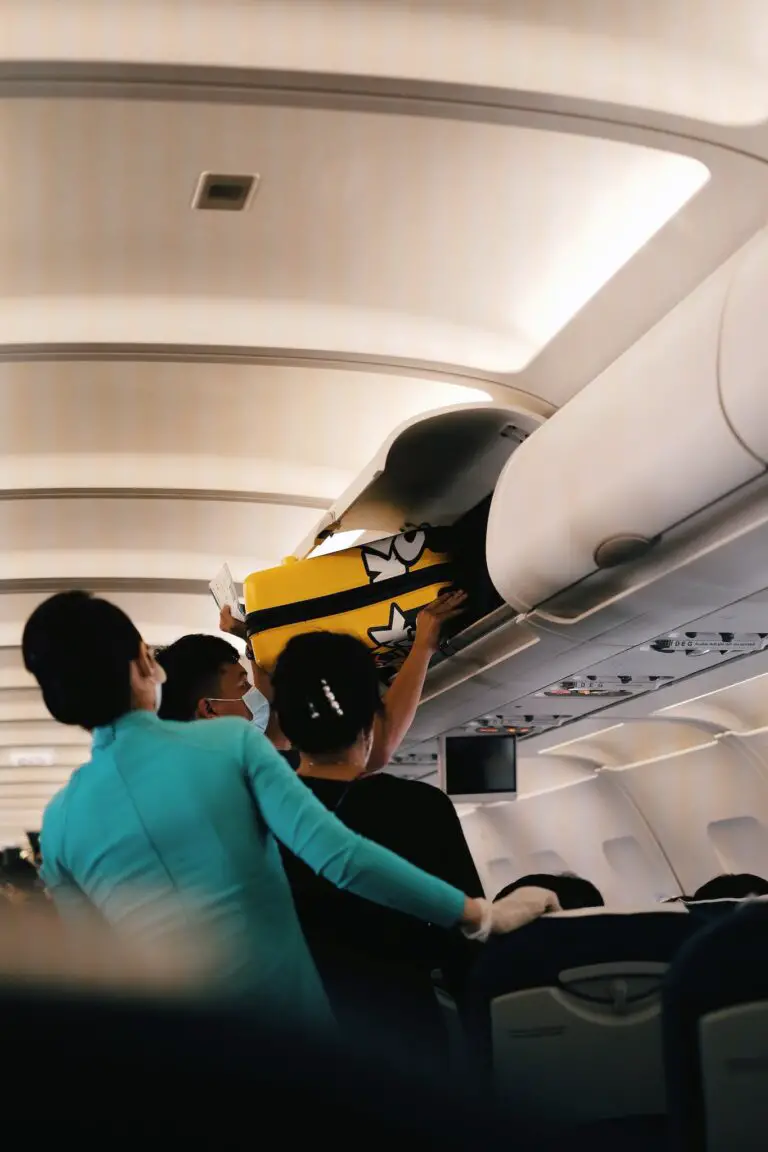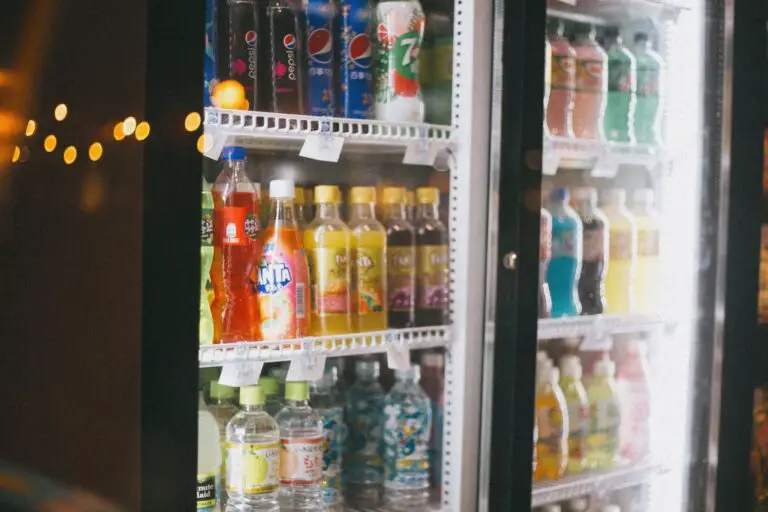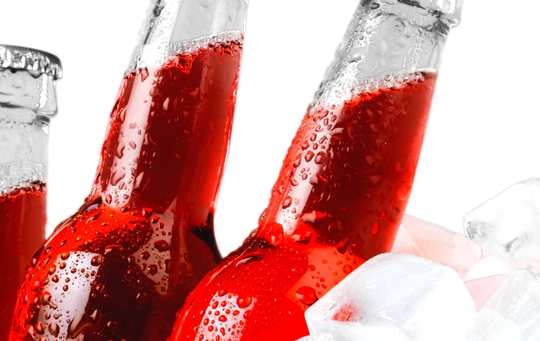5 Reasons Why Do Carbonated Drinks Lose Their Fizz Nov 2023
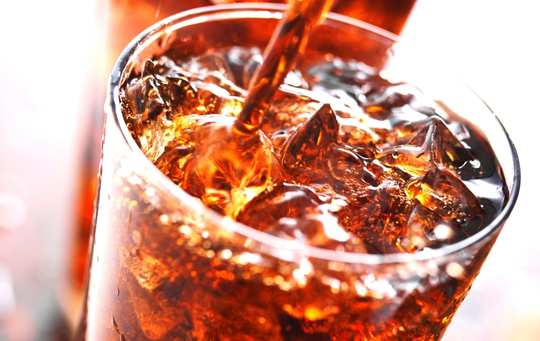
For millions of individuals worldwide, carbonated beverages are a favorite type of libation. These drinks are distinctive and enticing because of the bubbles that appear when they are opened. These bubbles can, however, sometimes be rather fleeting. What causes carbonated beverages to lose their fizz?
Why Do Carbonated Drinks Lose Their Fizz? Carbonated drinks may lose their fizz due to exposure to air or high temperatures, causing the carbon dioxide gas to escape. Proper storage in a cool and dry place to avoiding prolonged exposure to air or heat can help preserve the carbonation.
5 Reasons Why Do Carbonated Drinks Lose Their Fizz
| Reason | Explanation |
|---|---|
| Pressure Release | Over time, the pressure in the sealed container decreases as gas escapes, leading to a loss of carbonation. |
| Temperature Effects | Warm temperatures cause gases to escape more rapidly from the liquid, resulting in decreased fizziness. |
| Time and Shelf Life | Carbonated drinks have a finite shelf life, and as they age, their carbonation naturally diminishes. |
| Sealed Container Issues | Improper sealing or damage to the container can lead to gas leakage and a reduction in carbonation. |
| Mechanical Agitation | Shaking or excessive movement of the container can accelerate the release of carbon dioxide, causing the loss of fizz. |
Understanding these factors can help you maintain the carbonation in your favorite drinks for longer periods.
Key Takeaways

Why Do Carbonated Drinks Lose Their Fizz
Many things might cause carbonated beverages to lose their sparkle. One of the most frequent causes of a drink going flat is exposure to air, which can lead to the carbon dioxide gas escaping and the beverage becoming flat.
The gas may also disperse more quickly due to other variables like high temperatures.
The heat may cause the gas in soda bottle to expand and escape if it is left in a hot car for a long period of time, leaving you with a flat and unpleasant beverage.
Understanding Carbonation
Carbon dioxide (CO2) has been dissolved in water to create carbonated beverages.
When the container for these beverages is opened, the pressure inside is released, causing the CO2 to escape solution and produce bubbles.
The amount of CO2 dissolved in the water and the pressure applied to the liquid decide how carbonated the beverage will be.
Fluctuations in temperature, pressure changes, and exposure to air are just a few examples of the many things that can cause the CO2 in carbonated beverages to come out of solution.
The solubility of CO2 declines as the liquid temperature rises, allowing it to exit the solution and form bubbles.
Changes in pressure work the same way. The CO2 will bubble up if the pressure inside the container is lowered, forcing it out of solution.
Causes of Carbonation Loss
The loss of carbonation in carbonated beverages can be caused by a variety of circumstances. These consist of:
Exposure to Air:
Opening a carbonated beverage exposes it to air, which can lead to the CO2 escaping from the solution and forming bubbles.
Because of this, carbonated beverages can quickly lose their sparkle if they are not drank right away after opening.
Re-capping:
After being opened, re-capping a carbonated beverage lowers the pressure inside, which causes the CO2 to escape solution and form bubbles.
The beverage may lose its carbonation more quickly as a result than if it were left open.
Improper Storage:
To stop the CO2 from escaping from the solution, carbonated beverages should be kept in a cool, dark environment.
If they are kept in a heated environment, such a car on a hot day, the temperature rise may cause the CO2 to form bubbles and escape from solution, resulting in a loss of carbonation.
Use of Carbonated Water:
If carbonated beverages are created with carbonated water rather than still water, the solution’s concentration of CO2 will drop, resulting in a loss of carbonation.
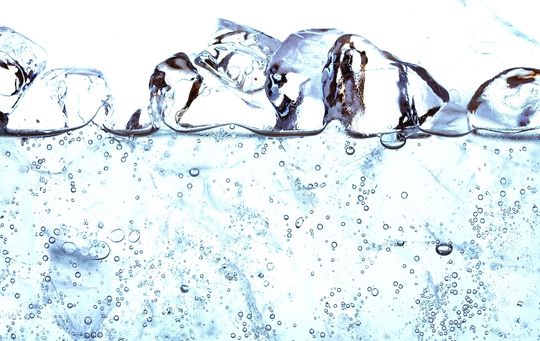
Keeping Carbonation from Evaporating
There are numerous actions that can be taken to stop carbonation from evaporating from carbonated beverages. These consist of:
Consuming Right Away:
It is advisable to consume carbonated beverages right away after opening to prevent the loss of carbonation.
If the beverage is not drank right once, it should be kept in a cold, dark location to prevent the carbonation from evaporating too quickly.
Proper Storage:
To stop the CO2 from escaping from the solution, carbonated beverages should be kept in a cold, dark location.
If they are kept in a heated environment, such a car on a hot day, the temperature rise may cause the CO2 to form bubbles and escape from solution, resulting in a loss of carbonation.
Utilization of Carbon Dioxide:
To replace the lost carbonation, carbon dioxide can be re-added to the solution. A CO2 dispenser, which is frequently found in pubs and restaurants, can be utilised for this.
Use of Airtight Containers: Carbonated beverages can be stored in airtight containers, such as reusable bottles with airtight lids, to prevent the loss of carbonation.
This will stop air from getting inside the container and cause the solution’s CO2 to escape.
Conclusion
In conclusion, a variety of conditions, such as exposure to air, changes in pressure, and variations in temperature, can cause carbonated beverages to lose their fizz.
Consuming the beverage quickly after opening, keeping it in a cold, dark location, and using airtight containers can all help to prevent the loss of carbonation. You can consistently enjoy a carbonated beverage by following these instructions.
The loss of carbonation might be a minor annoyance, but in order to avoid it from happening, it’s critical to grasp the science involved.
You can make sure that your carbonated beverages maintain their fizz and give you the enjoyment and refreshment you want by following the instructions provided in this article.
Frequently Asked Questions
Why Should Carbonated Beverages Be Kept Cold?
Carbonated beverages should be kept cold to preserve their carbonation and prevent them from going flat.
Lose Fizz
Carbonated beverages lose fizz when the dissolved carbon dioxide gas is released into the air.
Why Should Carbonated Beverages Be Kept Cold
Keeping carbonated beverages cold helps retain the dissolved carbon dioxide, maintaining their fizziness.
Why Does Soda Lose Its Fizz
Soda loses its fizz when the carbon dioxide gas, which creates the bubbles, escapes from the liquid.
Why Does Soda Fizz
Soda fizzes due to the release of carbon dioxide gas when the pressure is reduced upon opening the container.
Why Do Soft Drinks Go Flat
Soft drinks go flat when the carbonation, which provides the fizz, dissipates over time.
Do You Lose Soda When It Fizzes
Yes, when soda fizzes, some of the carbon dioxide gas escapes, leading to a loss of carbonation.
Does Sparkling Water Lose Its Fizz
Sparkling water can lose its fizz over time as the dissolved carbon dioxide escapes.
What Causes Fizz in Soda
The fizz in soda is caused by the dissolved carbon dioxide gas that is released when the container is opened.
What Causes Soda to Fizz
The release of carbon dioxide gas from the liquid causes soda to fizz when pressure is reduced.
Where Does the Fizz in Soda Come From
The fizz in soda comes from the dissolved carbon dioxide gas that is infused into the beverage during production.
Why Do Soft Drinks Fizz When Opened
Soft drinks fizz when opened because the release of pressure allows the dissolved carbon dioxide gas to escape, creating bubbles.
How to Keep Carbonated Drinks from Going Flat
To keep carbonated drinks from going flat, store them in a sealed, airtight container in the refrigerator to slow down the loss of carbonation.
Soda Loses Carbonation
Soda loses carbonation as the dissolved carbon dioxide gas escapes from the liquid.
What Causes Carbonation
Carbonation in beverages is caused by the infusion of carbon dioxide gas under pressure, which dissolves in the liquid.
Where Does the “Fizz” in Soda Come From?
The “fizz” in soda comes from the release of carbon dioxide gas that was dissolved in the liquid during manufacturing.
Why Do Carbonated Drinks Fizz
Carbonated drinks fizz because the carbon dioxide gas dissolved in the liquid is released when the pressure is reduced upon opening.
Carbonation in Drinks
Carbonation in drinks is the presence of dissolved carbon dioxide gas that creates bubbles and gives beverages a fizzy quality.
How to Make Fizzy Drink Go Flat Quickly
To make a fizzy drink go flat quickly, agitate the container to release the carbon dioxide gas, or leave it open to the air to allow the gas to escape.
What Gives Soda Its Fizz
The fizz in soda is caused by dissolved carbon dioxide gas that is released when the container is opened.
What Makes Soda Fizz
Soda fizzes due to the presence of dissolved carbon dioxide gas that is released upon opening the container.
Bubbles in Soda
The bubbles in soda are created by the release of carbon dioxide gas when the pressure is reduced.
Carbonation Drawing
Carbonation in soda is represented by the presence of tiny bubbles formed by dissolved carbon dioxide gas.
Does Soda Lose Carbonation When Frozen
Soda can lose some of its carbonation when frozen because the dissolved carbon dioxide may escape as it expands.
Fizz in Soda
The fizz in soda is generated by the release of carbon dioxide gas when the container is opened.
How to Keep Carbonated Drinks from Going Flat in a Can
To keep carbonated drinks from going flat in a can, seal the can tightly with a lid or use a specialized can cap to preserve carbonation.
How to Stop Fizzy Drinks Going Flat
To prevent fizzy drinks from going flat, store them in a sealed, airtight container and keep them refrigerated.
Soda Carbonation
Carbonation in soda is the presence of dissolved carbon dioxide gas that creates the characteristic fizziness.
Soda Fizz
Soda fizz is the result of carbon dioxide gas escaping from the liquid when the container is opened.
Soda with Fizz
Soda with fizz contains dissolved carbon dioxide gas, which creates bubbles and gives the beverage its characteristic effervescence.
Ulike Tea Menu
The menu at Ulike Tea likely includes a variety of tea-based beverages and other refreshments, but specific offerings may vary by location.
What Causes Fizz
The fizz in soda is caused by the release of carbon dioxide gas that was dissolved in the liquid during production.
What Is the Fizz in Soda
The fizz in soda is the presence of carbon dioxide gas bubbles released when the container is opened.
What Makes the Fizz in Soda
The fizz in soda is produced by the release of carbon dioxide gas when the container is opened.
Where Does Carbonation Come From
Carbonation in beverages comes from the infusion of carbon dioxide gas during the manufacturing process.
Why Do Fizzy Drinks Go Flat
Fizzy drinks go flat over time as the dissolved carbon dioxide gas escapes from the liquid.
Why Does Coke Lose Its Fizz
Coke loses its fizz when the carbon dioxide gas, which provides the bubbles, is released from the liquid.
Why Does Soda Fizz When You Open It
Soda fizzes when you open it because the release of pressure allows the dissolved carbon dioxide gas to escape, forming bubbles.


